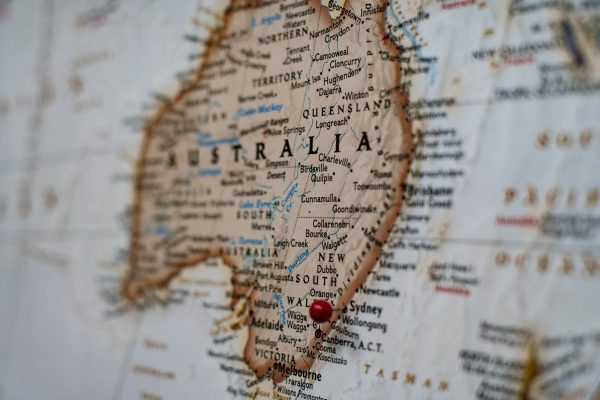Oceania | Society | Oceania
Cultural sophistication and economic complexity must be seen as intrinsically linked. It’s time for Australia to take language learning more seriously.
Last week I wrote on Australia’s lack economic complexity leads the country into a potentially perilous financial situation. Two of its biggest industries – coal and gas – have a limited future, and there are no major exports on the horizon that can replace the wealth they generate. While Australia has the potential to produce large amounts of renewable energy, the ability to export this energy is not as simple as exporting coal or gas. What Australia needs is a new way of operating, which it can build from scratch.
Yet vision isn’t exactly Australia’s forte. In 1964, journalist and academic Donald Horne wrote a review of Australia titled “The Lucky Country”. Ironically, the title of the book has entered the Australian lexicon as an expression used to extol the virtues of the country. Yet it was the opposite of Horne’s intent when he wrote that “Australia is a lucky country, ruled mostly by second-rate people who share its luck. Rather than knowledge, skill and imagination, Australia has continued to thrive on little more than good fortune.
Australia found itself sitting on an endless pile of valuable rocks, minerals and gas, and so felt no need to learn how to do anything more complicated than simply digging up these resources. and put them on ships. The country has a geography that has kept it away from major conflicts and has shared intimate relations with superpowers, first the British and then the Americans. These two powers have also made the English language the dominant global lingua franca, allowing Australia to make no effort to culturally engage with its own neighborhood.
Yet it is here, with languages, that Australia could begin to build the curiosity, ambition and complexity it lacks. Unlike the Nordic countries, which have made native-level English proficiency a national imperative, Australia’s commitment to language learning is weak. This is partly because of the belief that it is unnecessary due to the global dominance of English, and partly because the country simply does not understand the direct and wider benefits.
Currently, only Victoria makes it compulsory to learn an additional language from the start of primary school (at age five) until year 10 (around age 16). But languages become optional for the last two years of school. Through Australian Languages have the the lowest enrollment in the final year of any subject, with less than 10% of students studying a language other than English (with a noticeable gender gap in favor of girls). Many of these students are also the ones studying the language they speak at home. This is important, but it further demonstrates the country’s general lack of commitment.
Language learning is not just about being able to communicate in another language. While there are big debate As to whether bilingualism improves overall cognitive ability, it is clear that additional languages provide people with a broader perspective on the world and a greater ability to understand and comfortably engage with its diversity. Cultural sophistication and economic complexity must be seen as intrinsically linked.
Despite Australia’s vast multiculturalism – more 300 languages are spoken in the country – the dominant Anglo-Celtic culture remains firmly committed to a monolingual mindset. This poses more direct issues than the ability to broaden the country’s spirit and develop the knowledge and skills that Australia currently lacks. The inability to interact with business partners in their own language creates a economic deficitand it is also a serious obstacle to bilateral diplomatic relations.
Both of these problems are due to an arrogant expectation that other countries will always “come to us” in English, and therefore learning other languages is superfluous. Yet this perspective does not build intimate and trusting relationships between equals. It projects the idea that Australia sees itself as superior, as a country that has little interest in – or respect for – the culture of others.
Given Australia’s federal structure and education being primarily the responsibility of state governments, Australia has the opportunity to be creative in language learning. For example, students could learn Bahasa Indonesian in Queensland, Mandarin in New South Wales and Japanese in Victoria, with fluency in each state’s chosen language considered essential for graduation. secondary studies. This would greatly improve the overall capabilities of the country.
Of course, seriously addressing the country’s lack of language skills and cultural sophistication is no panacea for the structural economic problems that Australia will soon face. But it should be seen as part of a series of far-sighted reforms aimed at addressing the critical shortage of knowledge, skills and ideas in the country – a necessary first step for Australia to recognize and accept that it cannot continue to simply effortlessly navigate the world. by chance alone.

